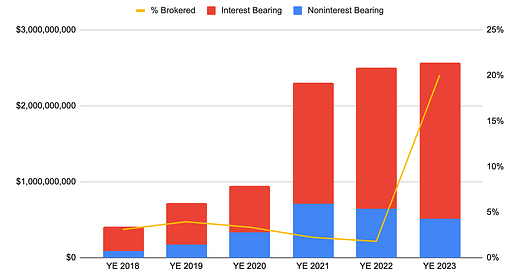Blue Ridge's Brokered Deposits Soar 1,000% As It Offboards Fintechs
Varo Spent $20m On Ads But Lost 1m Accounts In 2023, City National Hit With $65m Penalty for Unsafe & Unsound Practices
Hey all, Jason here.
It’s a special day in our household — our dog, Lito, is turning four years old today! Yes, there will be a (dog-safe) birthday cake 🎂 to celebrate.
Otherwise, it’s been a dreary and busy time in the Netherlands. I’ve mostly been heads-down working on a number of projects, particularly as the spring is shaping up to be a busy conferen…



